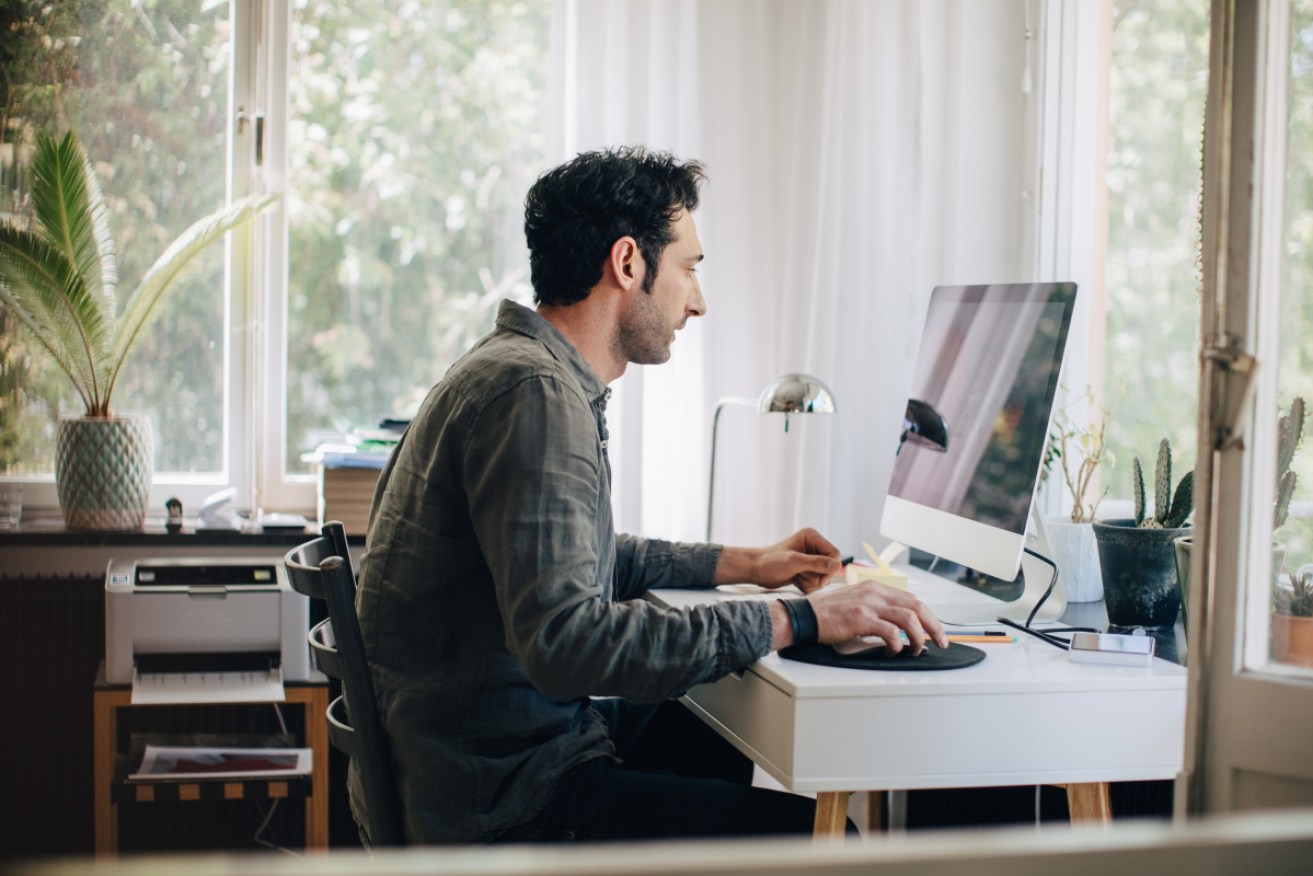Working from home? Lockdown doesn’t have to be a pain in the neck if you take these steps


Experts have given their advice on how you can weave movement into your workday. Photo: Getty
Locked-down Melburnians with desk jobs are ending up in physiotherapy with prolonged headaches or persistent pain in their neck or back from barely moving all day.
The incidental exercise of walking to and from work, going out to eat with co-workers, or just strolling over to the water cooler is not happening for those stuck at home due to the coronavirus.
“That’s been a huge observation that my clients have made,” said Melbourne-based physiotherapist Kathryn Anderson.
Aside from a bathroom break or the little walk to the fridge, they do not have a reason to get up from their desks.
As a result, people are taking more than 9000 fewer steps than the recommended 10,000 for adults every day, she said.
“I can’t tell you the number of people in the last few months who’ve told me that their daily step count has been less than 1000,” Ms Anderson told The New Daily.
“That’s a huge issue.”
People slumped comfortably on their beds or working at a standing desk aren’t immune to the consequences of sitting in a chair for prolonged periods.
Static postures are the issue, Ms Anderson said.
She has seen a “significant” number of people with back pain or neck pain or prolonged headaches from static sitting.
But whether you’re standing constantly or sitting constantly, neither is preferred, she said.
And the injuries sustained from sitting too long in bed with the laptop, for example, tend to be more severe, she added.
“With your legs out in front of you, the nerves that go down the back of your legs are on a constant stretch so they can become kind of irritable, which can lead to lower back pain and glute pain and hip pain,” Ms Anderson said.
“Because they’re slumped back onto the headboard and then their neck and shoulders have to be relatively rounded to look at the laptop … you’re probably going to be fronting out for an injury a bit quicker than sitting on an ordinary chair.”
People need to get strategic about the way they care for their health in the age of COVID-19, she said. The goal is to break static postures.
Before you sit down at your desk in the morning, quickly walk up and down the house 10 times, Ms Anderson suggested.

Most of our postures haven’t improved in lockdown. Photo: Getty
If you have a sit-stand desk, try standing for 40 minutes, then sitting for 20, then standing for 20 and sitting for 40.
“Every time you stand up, it’s virtually doing a squat, every time you sit down it’s virtually doing a squat,” Ms Anderson said.
The effects of uninterpreted sedentary behaviour aren’t just physical.
A study released in May found people who interrupted their sitting “very often” reported half the rate of depression and anxiety symptoms compared with those who never or rarely interrupted their sitting time.
No matter how correctly you eat, you need to weave movement into your workday, said Deb Sutherland, chair of the occupational health group at the Australian Physiotherapy Association.
For example, don’t keep your water bottle at your workstation. Put it somewhere else so you’re forced to get up every time you’re thirsty, Ms Sutherland said.
You might have a Zoom meeting that’s held in another room. Take your laptop into the laundry, for example, put it on a mantle and work while standing, she suggested.
Ideally, you should change your posture every half-hour. “You might do some shoulder shrugs or straighten your knees, stand up very briefly, straighten up your back and your neck and then you keep working,” Ms Sutherland said.
Move your big muscles every two hours, she advised. That may mean walking around the house or up and down some stairs.
“Plan what you’re going to do and pick a place that you’re going to do it and integrate your movement that way,” Ms Sutherland said.
“It’s a much more clever way of doing it and it’s more likely to be sustainable.”








